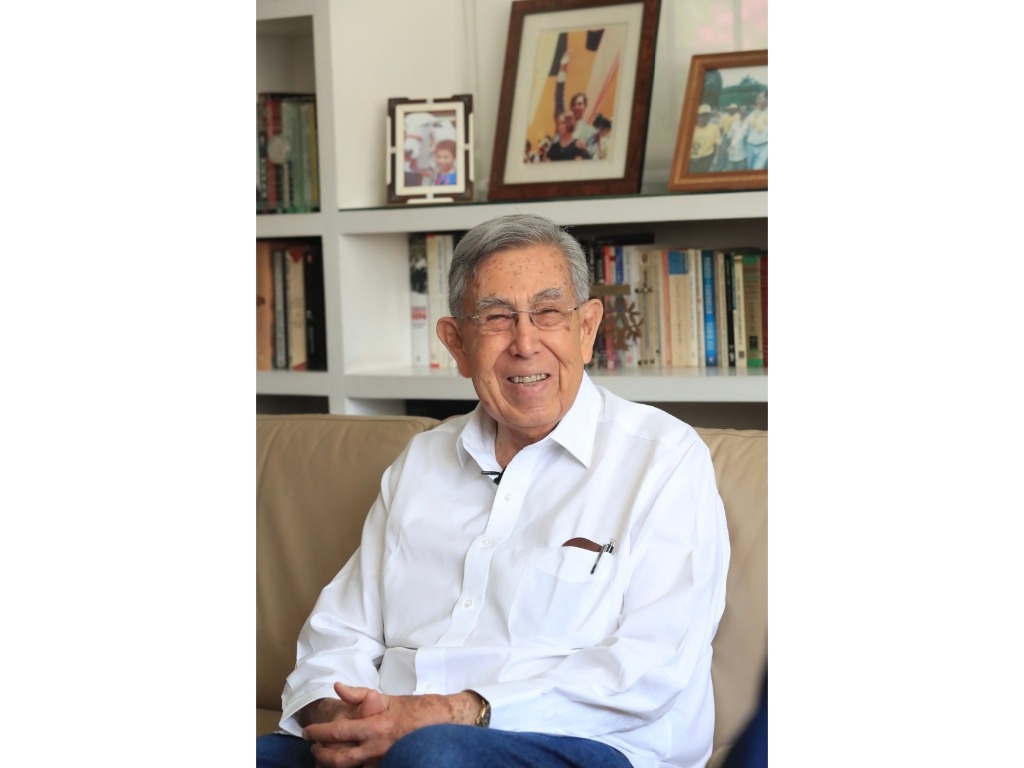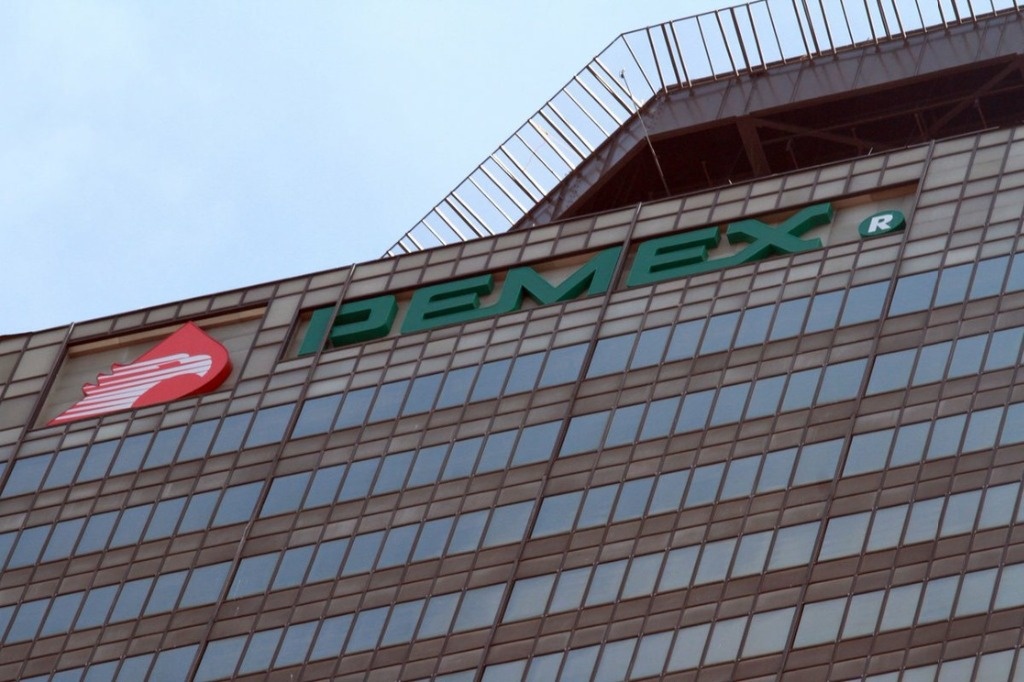Cuauhtémoc Cárdenas, a key figure in the democratic transition and the fight against inequality in Mexico, turned 90 this May 1st. He has experienced them as a central actor in the political history of the country. He is in a very good mood.
In his office, he reflects to The Conference about key moments in his public career, surrounded by a canvas by Alfredo Zalce and a huge portrait of Hermegildo Galeana painted by Ramón Alva de la Canal; photos of him with his wife Celeste Batel (who died last year) and snapshots of his campaigns; of busts of General Lázaro Cárdenas and hundreds of books, such as one about Sacco and Vanzetti.
Senator and governor of Michoacán, architect of the formation of the Democratic Current of the PRI, three times candidate for the Presidency of the Republic, victim in 1988 of a scandalous electoral fraud and first democratically elected head of Government of Mexico City, maintains that Reaching 90 years old is no fun. It is a product of being in good health and not having had any accidents along the way.
. With precise memory, he narrates his journey from the National Liberation Movement (MLN) to the present day.
Dedicated to the search for solutions to the country’s problems, he maintains that there is no Cardenismo. What exists – he says – is a great movement that was the Mexican Revolution, which is updated and maintains the ideal of equality, broad democracy and sovereignty. Below is part of this interview.
–How difficult is it to bear the surname Cárdenas?
–I always had that last name. It was a natural thing. Since I was a child I had an idea of who my father was politically. He was always very close, very affectionate. He was interested in what he did, in what he thought, in my studies. He was very close to my friends. I was the only child of my parents. There were always many friends at home.
When I had the chance to participate politically, the name counted. I was very aware of it. I had to take care of that aspect, not doing stupid things or doing as little as possible.
–He was part of the MLN (1961-1964).
–I participated in the National Liberation Movement. It was very important, very formative. It sought to fulfill the objectives of the Latin American Conference for National Sovereignty, Economic Emancipation and Peace, of 1961.
I was at that conference as an observer. When the MLN is created, I have the opportunity to participate more actively. This allows me to travel to different parts of the country, promoting the movement.
–How did the student movement of ’68 experience?
-From far. From ’64 to ’69 he was in charge of an engineering project in the Balsas River basin in Michoacán. I followed the student movement from afar. On October 2 I was in Mexico City, at home with my parents. News began to arrive that something was happening in Tlatelolco. We were very worried about what happened that day and about the imprisoned university students.
The engineer affirms that carrying the famous surname has always been a natural thing and that reaching 90 years of age is no fun. Photo Luis Castillo
Incursion into the PRI and Democratic Current
–How do you get into electoral politics?
–My first electoral participation was in 1976, as a candidate for senator for Michoacán. My father had died in ’70. Mr. López Portillo invited me. I tell him no, that I am interested in collaborating in his government if an opportunity opens up. On a boat ride between Pátzcuaro and Janitzio he asks me why I don’t accept the challenge of a campaign. I reply that if that works for you, I’ll do it.
It was very humbling. I visited all the municipalities of Michoacán. I was only in the Senate for three months because López Portillo invited me to be undersecretary of forestry.
–Why do you break with the PRI?
–I was at the head of the government in Michoacán from 80 to 86. There were many issues with which I and other people did not agree. We talked about it at friends’ meetings. There were political prisoners, a strong social deterioration and a decline in living standards.
“Coming out of an extraordinary assembly of the PRI, I agree with Porfirio Muñoz Ledo. We express our concerns. We agreed to meet. We ate and agreed to share these concerns with some friends.
“We made a small relationship of about 10-12 people. We met at Ifigenia Martínez’s house. Later, we learned of an interview by Muñoz Ledo in the One plus one, in which he spoke of a critical democratizing current. She surprised us. We were not aware. The name was accepted.
“My term in the government of Michoacán was ending. We toured the country. We raise two questions. The social ones: education, health, living standards. And that the PRI opened elections to choose its candidate. This led to a clash with the party. They invented that so-called pre-candidate catwalk, in which six officials participated.
“We had to decide: either we go home or we join the official candidacy or we launch a candidacy that asks for the vote in the white circle. Three parties had been left hanging. The exposure did not work for them and they disconnected from their contacts with the government. They approached him to see if he would agree to be their pre-candidate. When Carlos Salinas’ candidacy came up, the decision the group made was ‘let’s go’. “We started as a three-party presidential candidate.”
–Did you respond with enough energy after the fraud of ’88?
–After the election, there was a call to carry out acts of civil resistance. We didn’t have access to media. Radio and television were closed. There was no means to pay for those displayed in the written press. Blackouts were called. They were given very limitedly. We did not have the capacity to call actions throughout the country.
We had called to act within the law, without violence or clashes. We had not collected stones or slingshots or anything similar. We knew that inside the National Palace there was a fire capacity that, if we had wanted to take it, who knows what would have happened. The solution was to form a political party to carry out the objectives set in the campaign.
First head of the capital’s government
–He was the first democratically elected head of Government of Mexico City.
–When the new government of Ernesto Zedillo enters, there is the december mistake. A strong economic, political and rural crisis occurs. The possibility of electing a ruler in the Federal District for the first time was opened. New powers are given to the Legislative Assembly and the media are opened. That meant a very important change.
(In mid-1997) there is an opposition government in the capital of the Republic and a local assembly mostly of the opposition. Furthermore, the official party loses its absolute majority in the Chamber of Deputies. They were very important changes, which occurred after the opening in Mexico City.
The Zapatistas
–In his 94 campaign he went to the jungle and spoke with the Zapatistas. What motivated him?
–If the Presidency was being sought, it could not be recognized that there was a political and social conflict in the jungle of Chiapas. We had to find a way to address it and resolve it. It is a conflict that continues to exist, since the San Andrés Agreements are not fulfilled. I insist that they would have to be fulfilled.
“From then on I maintained a relationship with the Zapatistas seeking to reach an agreement. We went several times in the first months of 94 and also during the Zedillo government; on some occasions with Mr. López Obrador, with Rosario Ibarra. Other times with my children Lázaro and Cuauhtémoc. Afterwards there were some misunderstandings. I always respect what the Zapatistas do. I think it is their role and obligation to keep alive the flame they lit in ’94.
–Is there continuity or rupture between your project and that of the President?
–I wouldn’t say continuity or rupture. They are part of a current that is seeking, mainly, to raise living conditions and open opportunities for people. We have not had – and I would say this in the plural – the possibility of advancing in terms of equality. We have strong social and economic inequalities, poverty. Although it has decreased in percentage terms, in absolute terms it has not decreased as would have been desirable. They have had different priorities. Those are the differences. It would be irrelevant at this moment to say which ones are yes or which ones are not, because we are in electoral times. Let’s let this walk.
ideal of equality
–What is Cardenismo today?
–I don’t think there is cardenism. I agree on this, among many other things, with my father. The Mexican Revolution is a great political and social movement that is updated, which is not static. 1910 is not the same as 1938. The revolutionary ideal of equality, of broad democracy, of breaking all ties of dependence and being able to fully exercise sovereignty are principles that are maintained. Within the movement there are currents that give more emphasis to one thing and others that give more space to others.
–What’s next for engineer Cárdenas?
–Continue in the same way. It is a mistake to think that things can only be done from a public position. It is limiting opportunities. In some cases, there are issues that take more time, but you have to keep insisting.
#Cardenismo #exist #ideology #Revolution #prevails
– 2024-05-05 14:22:53


